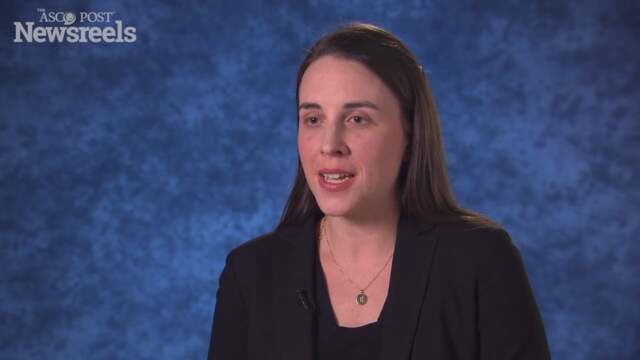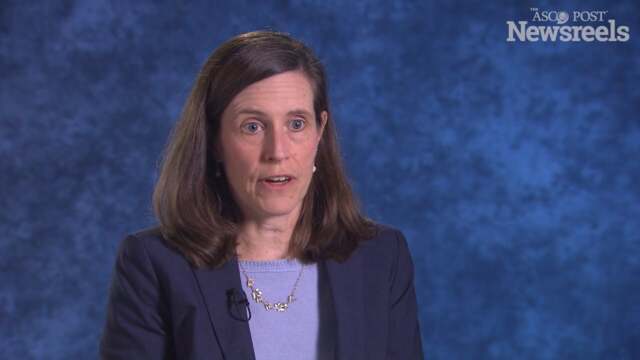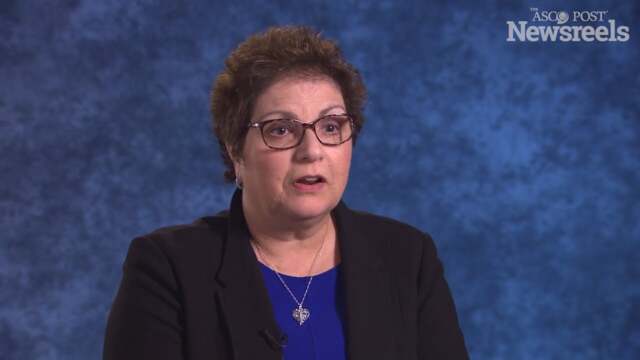Shoshana M. Rosenberg, ScD, MPH, on Young Breast Cancer Survivors: Helping Them Cope
2017 Cancer Survivorship Symposium
Shoshana M. Rosenberg, ScD, MPH, of the Dana-Farber Cancer Institute, talks about ways to help young women move from active treatment to survivorship, based on findings from focus groups in which patients discussed their unexpected physical and psychological experiences after surgery (Abstract 180).
Allison Harvey, MPH, CHES, of George Washington University, evaluates preliminary outcomes among primary care and oncology providers who took part in the Cancer Survivorship E-Learning Series (Abstract 78).
Mohammad Abu Zaid, MD, of Indiana University Simon Cancer Center, discusses findings from a multicenter study of North American testicular cancer survivors, their prevalence of hypertension, risk factors for metabolic syndrome, and the need for screening and treatment (Abstract 102).
K. Holly Mead, PhD, of George Washington University, discusses specialized survivorship-specific programs, which are gaining prominence, with over 40% of cancer centers in her study providing this type of care (Abstract 1).
Lauren P. Wallner, PhD, MPH, of the University of Michigan, discusses her findings on the type of providers women prefer when it comes to handling survivorship care after breast cancer treatment and the need to clarify and discuss provider roles with patients (Abstract 99).
Electra D. Paskett, PhD, of The Ohio State University Comprehensive Cancer Center, discusses an intervention that increased knowledge of lymphedema in breast cancer, and the personal story that drove her research (Abstract 104).




